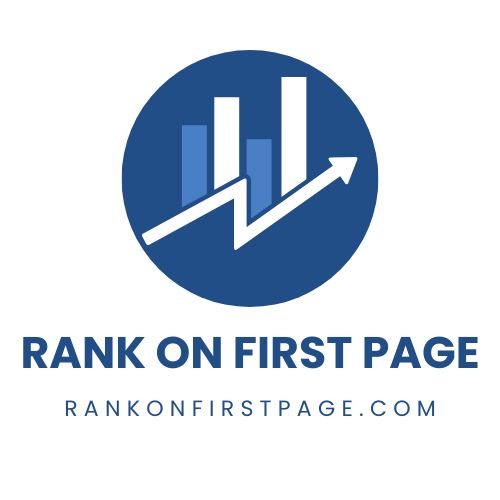In the competitive landscape of e-commerce, finding the right keywords is essential for driving targeted traffic to your online store. Effective keyword research tools can help you identify high-converting search terms, understand customer intent, and optimize your product listings for maximum visibility. This guide explores the most valuable keyword research tools for online store owners, covering both free and paid options to suit every budget.
Free Keyword Research Tools
Google Keyword Planner
Google’s free keyword tool provides reliable search volume data and keyword suggestions directly from the search giant itself. While primarily designed for Google Ads users, it offers valuable insights into what potential customers are searching for. The tool shows monthly search volumes, competition levels, and suggested bid prices for paid campaigns.
Ubersuggest
Neil Patel’s Ubersuggest offers a generous free tier that provides keyword suggestions, search volume data, and SEO difficulty scores. The tool also shows content ideas and competitor analysis features that can help online store owners identify gaps in their keyword strategy.
AnswerThePublic
This visualization tool displays questions and phrases that people type into search engines around your seed keywords. For online retailers, this reveals valuable long-tail keyword opportunities and helps understand the questions potential customers have about your products.
Google Search Console
While not technically a keyword research tool, Google Search Console provides invaluable data about which keywords are already driving traffic to your store. This helps identify optimization opportunities and keywords that convert well for your specific audience.
Paid Keyword Research Tools
Ahrefs
Ahrefs offers comprehensive keyword research capabilities with accurate search volume data, keyword difficulty scores, and competitor analysis. Its “Keywords Explorer” tool provides click metrics, showing not just how many searches a term gets but how many actually result in clicks. For online stores, the “SERP Features” analysis helps optimize for shopping results.
SEMrush
SEMrush excels at competitive keyword research, allowing online stores to discover which keywords competitors rank for. Its “Keyword Magic Tool” offers filtering options specifically relevant to e-commerce, such as commercial intent and question-based searches. The platform also provides PPC data to inform paid search strategies.
Moz Pro
Moz Pro combines keyword research with rank tracking and site auditing tools. Its keyword difficulty score helps online store owners prioritize winnable keywords, while the “Keyword Explorer” offers SERP analysis to show what type of content is currently ranking for target terms.
Jungle Scout
Specifically designed for Amazon sellers, Jungle Scout provides keyword research tools tailored to the Amazon marketplace. It shows search volume specific to Amazon, keyword trends, and product opportunity scores to help identify high-potential products and keywords.
Specialized E-commerce Keyword Tools
Sellzone Keyword Wizard
Designed specifically for e-commerce, this tool focuses on commercial intent keywords that drive conversions. It offers data on buyer keywords, seasonal trends, and competitive intelligence specifically for online retailers.
Helium 10
Another Amazon-focused tool, Helium 10 provides powerful keyword research capabilities for marketplace sellers. Its “Magnet” tool aggregates keywords from multiple sources to provide comprehensive suggestions for product listings.
How to Choose the Right Tool for Your Online Store
When selecting a keyword research tool, consider these factors:
- Budget: Start with free tools if you’re on a tight budget, then invest in paid tools as your store grows.
- Platform focus: Choose tools that specialize in your sales channels (general search, Amazon, etc.).
- Data accuracy: Compare keyword volume data between tools to ensure reliability.
- Learning curve: Some tools are more intuitive than others, which matters if you’re new to SEO.
- Additional features: Consider whether you need related capabilities like rank tracking or competitor analysis.
Frequently Asked Questions
What are keyword research tools for online stores?
Keyword research tools for online stores are specialized software solutions that help e-commerce businesses identify the search terms potential customers use when looking for products. These tools provide data on search volume, competition, and commercial intent to help optimize product listings, content, and advertising campaigns.
Which keyword research tools are best for beginners?
For beginners, Google Keyword Planner, Ubersuggest, and AnswerThePublic offer user-friendly interfaces and valuable data without overwhelming complexity. These free tools provide enough insights to get started with keyword optimization for your online store.
How much should I budget for paid keyword research tools?
Most professional keyword research tools range from $30 to $200 per month, depending on features and data limits. As a general guideline, allocate 5-10% of your marketing budget to research and analytics tools, including keyword research software.
How often should I conduct keyword research for my online store?
Conduct comprehensive keyword research quarterly to identify seasonal trends and market shifts. However, ongoing keyword monitoring is recommended, especially when launching new products or categories. Many successful online stores integrate keyword research into their regular product listing optimization workflow.
Can I use the same keyword research tools for all e-commerce platforms?
While general tools like Ahrefs and SEMrush work well across platforms, marketplace-specific tools like Jungle Scout (Amazon) or Sellzone provide specialized data for particular channels. The best approach is to use general tools for overall strategy and specialized tools for platform-specific optimization.
How do I find keywords with high purchase intent for my online store?
Look for keywords containing terms like “buy,” “shop,” “discount,” “best,” “review,” or specific product specifications. Commercial intent keywords often include comparison terms or specific model numbers. Most paid keyword research tools include filters for commercial intent to help identify these valuable terms.
What metrics matter most when evaluating keywords for an online store?
Beyond search volume, focus on competition levels, click-through rates, conversion potential, and seasonal trends. For e-commerce, the best keywords balance decent search volume with manageable competition and strong purchase intent.
How can I track if my keyword research is actually improving my online store performance?
Connect your keyword strategy to analytics by tracking organic traffic, conversion rates, and revenue attributed to specific landing pages. Tools like Google Analytics and Google Search Console help correlate keyword rankings with actual business results.
You can also refer this article to know more about keyword research

